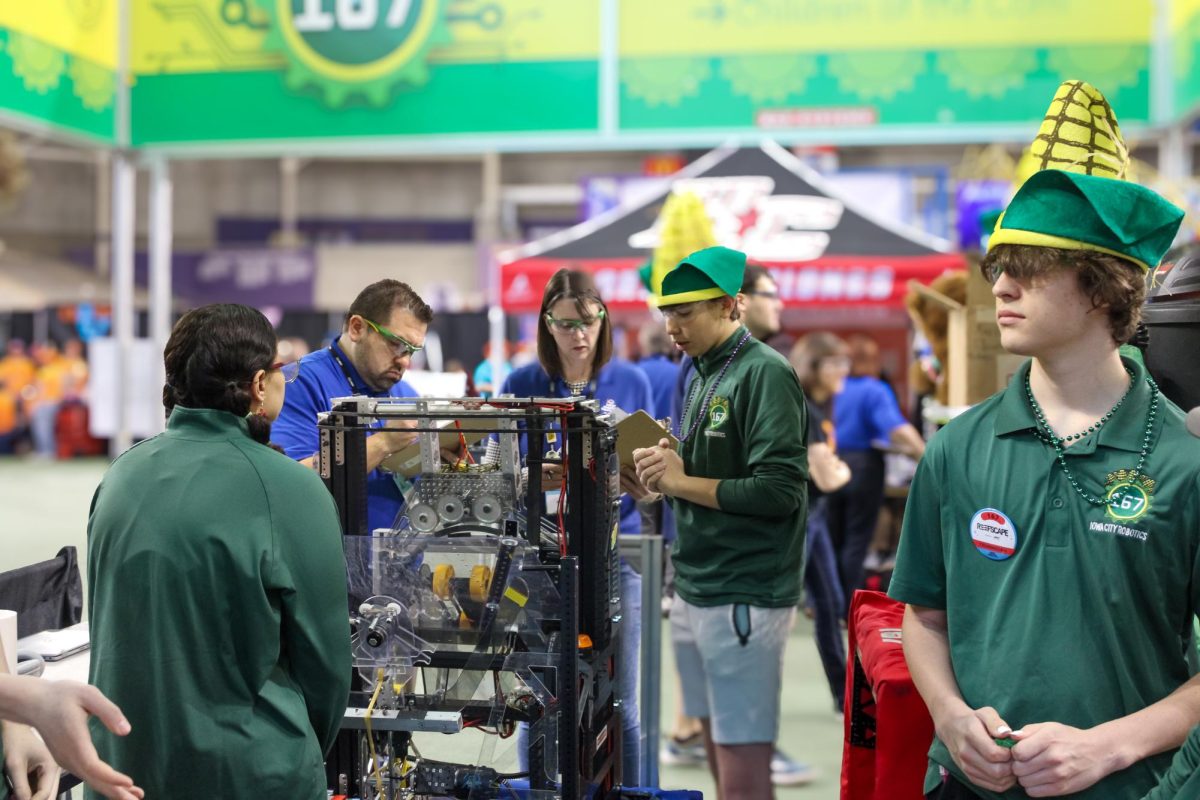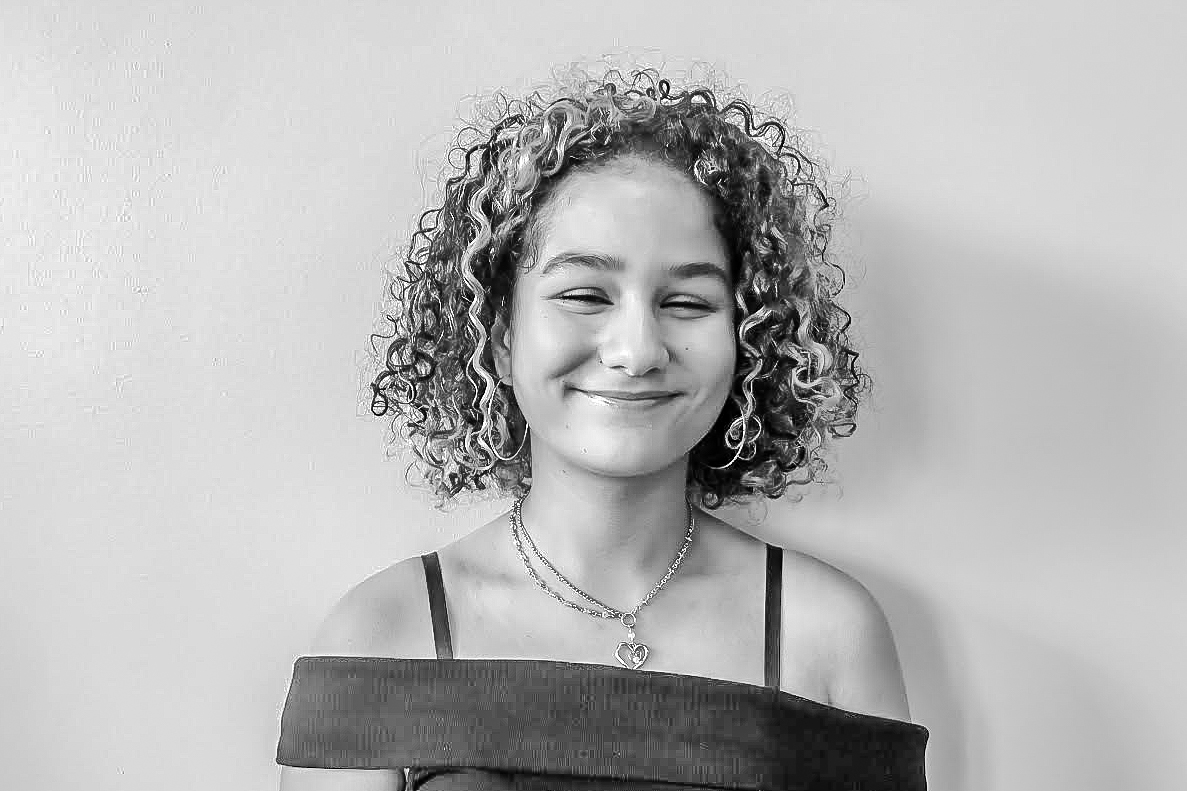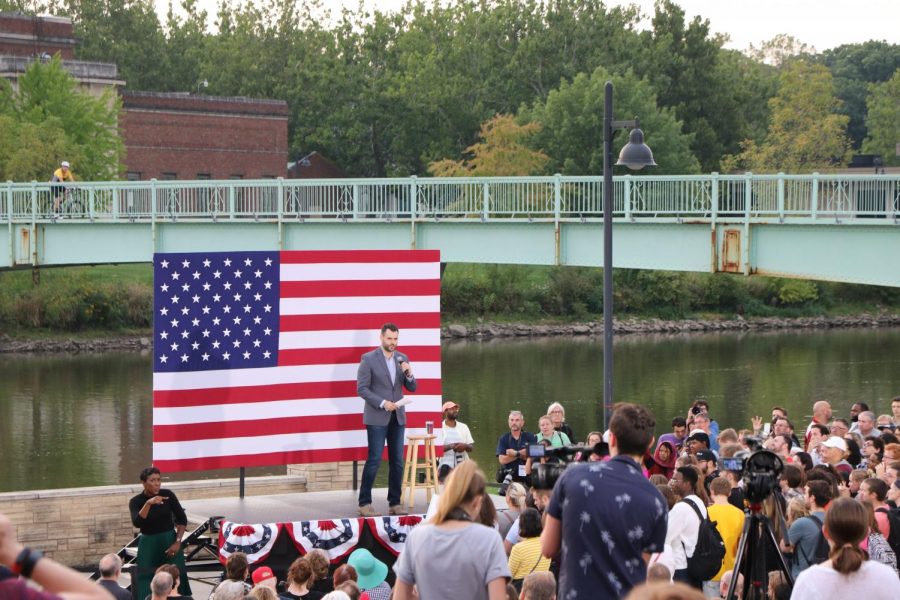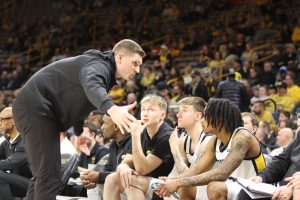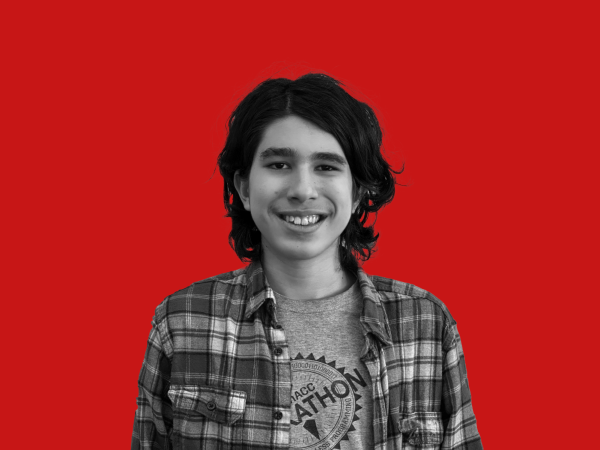Impact of the Caucuses Felt Up and Down the Ballot
State senator Zach Wahls speaks at an Elizabeth Warren rally in fall of 2019.
February 17, 2020
The caucuses draw national attention to Iowans as presidential candidates tour the state, trying to persuade voters to stand in their corner on February 3. However, while the caucuses are on a national level, they affect local politicians as well.
Linn County Supervisor, Stacey Walker, is the Bernie Sanders campaign state co-chair. Walker endorsed Sanders back in October, and since then has introduced the senator multiple times on stage and has interacted with the national political field.
“It’s exciting. You know, these are folks like Alexandra Ocasio-Cortez who are truly my political heroes,” Walker said. “To be able to spend so much time with Senator Bernie Sanders and understand his worldview and approach to politics and his vision for a better America has been inspiring. I mean there are a lot of days where you can feel kind of down about politics in the state of this country, and so when you have the opportunity to spend time with such dynamic leaders, it’s uplifting. It’s one of the coolest experiences of my political career thus far.”
Walker believes that once the caucuses are over, the Iowa Democratic party will be shifted further left.
“Caucuses are absolutely changing the conversations that we’re having. This is forcing us to be more progressive in our outlook, in our approach to different issues, which I think is a wonderful thing and it gives people like me a little bit of political cover and a little bit of a leg to stand on,” Walker said. “When these [presidential] candidates aren’t trying to win a Democratic primary in a presidential year, our Democrats in this state tend to be a little more anchored in the middle, and that’s obviously not where I operate, so when he’s got all this energy here, it certainly gives more legitimacy…to progressive arguments.”
Walker is not the only Iowa politician who has been thrown into the national political world, however. State Senator Zach Wahls has endorsed Senator Elizabeth Warren and has had interaction with her, such as introducing her at events. However, the caucuses aren’t his main concern.
“My number one priority is always my constituents and the legislative work,” Wahls said. “I mean, the caucuses are obviously a really big deal, a huge part of something that so many Democrats are watching closely, but the number one thing is my job to which I was elected, which is to represent district 37.”
Wahls believes the issues surrounding the presidential race are issues Iowans care about and experience.
“The good thing about the caucuses is that the issues that the candidates are focused on really are informed by the electorate, the state. Medicaid privatization continues to be a really big issue in the state and I think that’s an issue that is on the radar now for several of the candidates who are running, including Senator Warren,” Wahls said.
However, getting in with national politicians isn’t the only effect felt for local civil servants. Christina Bohannan is a professor at the University of Iowa College of Law who is running for the first time for a seat in the Iowa House of Representatives.
“The local Democratic Party has a lot of socials and other events and things like that, so as a candidate when you’re running you want to go and meet a lot of people,” Bohannan said. “If there’s an energy, and people are showing up because of the presidential caucus, then that’s a good opportunity for you…and so there are a lot of ways in which [the caucuses are] really good. There’s a lot of energy around politics right now, which is good.”
However, running for office in Iowa during the caucuses does present its challenges.
“It is a little challenging, though, to get people to focus on a local campaign while the presidential caucus is going on. I don’t even try,” Bohannan said. “At this point I’ve just decided that people are focused on the caucus and rightly so. It’s a big deal and the most important decision I think most of us will make this year, in my opinion.”
Bohannan, in the meantime, has been focusing on attending events and going to one-on-one meetings while she waits for the caucuses to be over as she approaches the primary on June 2. Other candidates in the state will also be continuing to campaign in their elections.
“There’s still going to be some high-profile races that I think will start to get a little more attention, most notably the U.S. Senate race to replace Joni Ernst,” Walker said.






